# A Quick Tutorial for Busy People
[TL;DR](https://vocabulary-journal.com/#services): [vocabulary-journal.com](https://app.vocabulary-journal.com) is an AI notebook to enhance your English expressiveness. On this platform, we can build and manage our personal English corpora, practice writing using them and receive feedback to expand our active vocabulary, and do automatically generated exercises based on our interactions to retain it effectively.
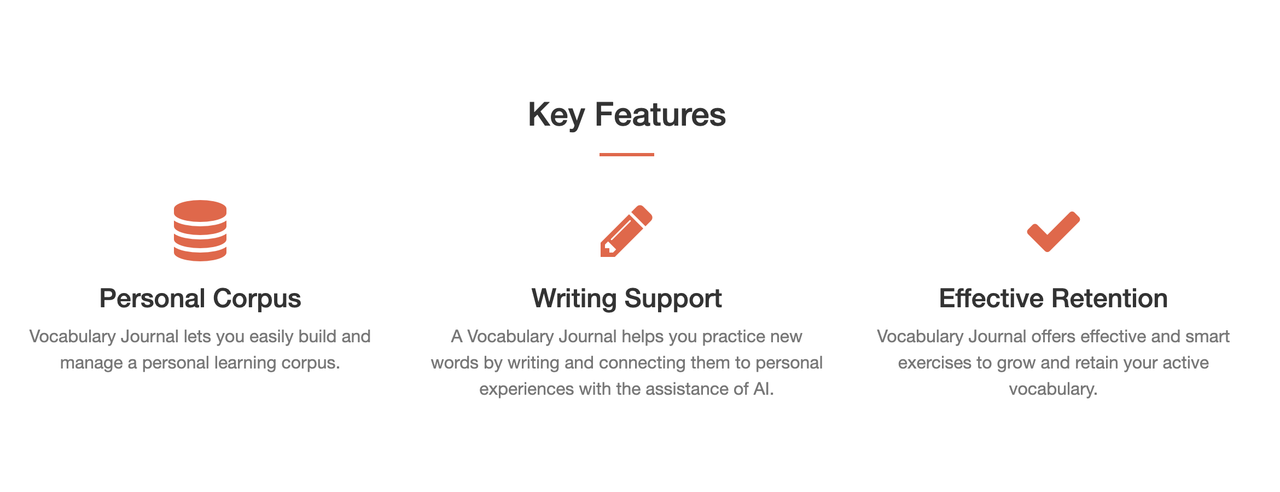
Our purpose is to expand our active vocabulary ([Speaking is Fast Writing—Practice by Writing Until You Can](https://app.vocabulary-journal.com/contexts.html?id=jsbxFsV1729590278760)). Active vocabulary is the set of words that a person can use accurately and confidently in their speech and writing. It's made up of words that are integrated into a person's communication and are used frequently. Active vocabulary differs from passive vocabulary, which is the set of words that a person understands but can't use.
To achieve this goal, the following are three key pillars of vocabulary-journal.com.
## 1. Personal corpus
[Extensive reading](https://www.reddit.com/r/languagelearning/s/LRJ8UOBxt3) is key to building our vocabulary reservoir. While reading, we may come across many aptly-worded excerpts, sentences or contexts, and in this case, we can save them on vocabulary-journal.com to form our personal learning corpora.
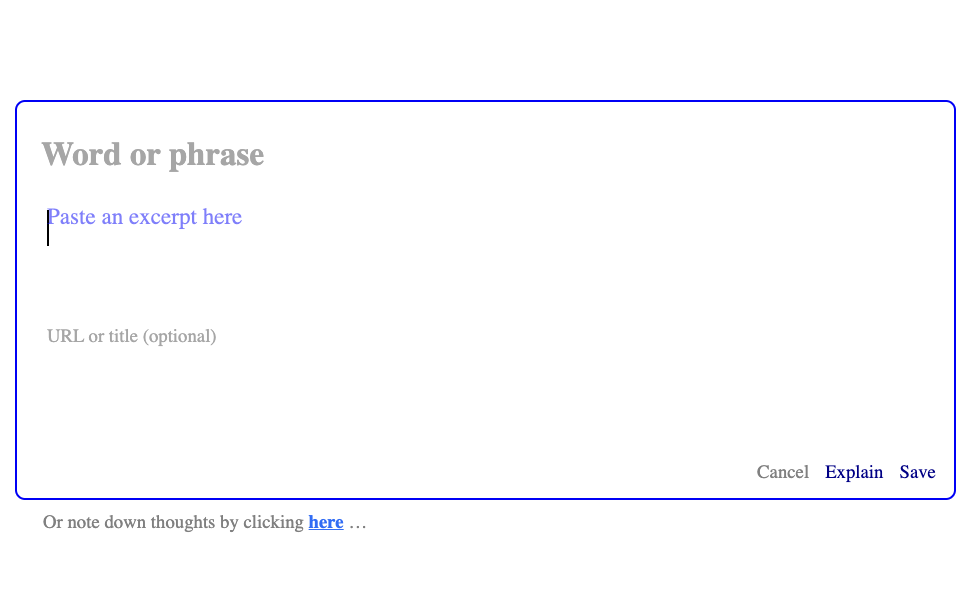
We can also navigate to the Plaza community to fork, or save, nice contexts from others' corpora by clicking the little red heart in the bottom left corner.
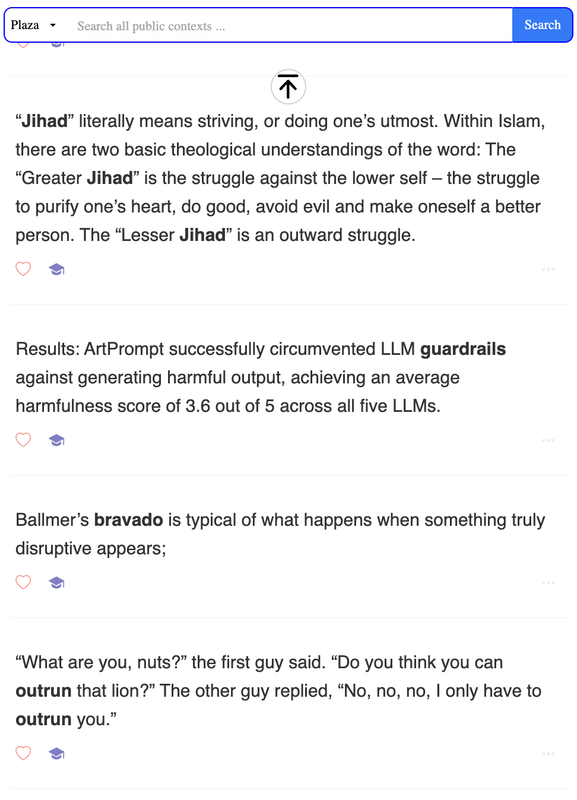
Or we can search for a new lexical unit, word or phrase, and save what we like from the results.
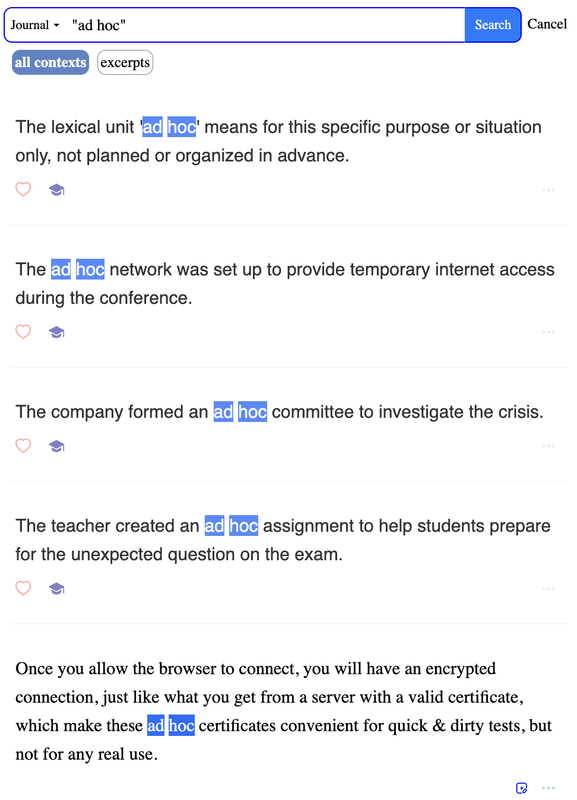
The personal corpus is at our disposal anytime we need it. We can search it, edit it, and do more as follows.
## 2. Writing support
The only way to master a word is to use it in real life contexts as frequently as possible with timely corrective feedback, especially relating it to our personal experiences.
After saving a context, we'll see a little blue icon in the bottom right corner. Just click it, and we'll be provided with an input box to write.
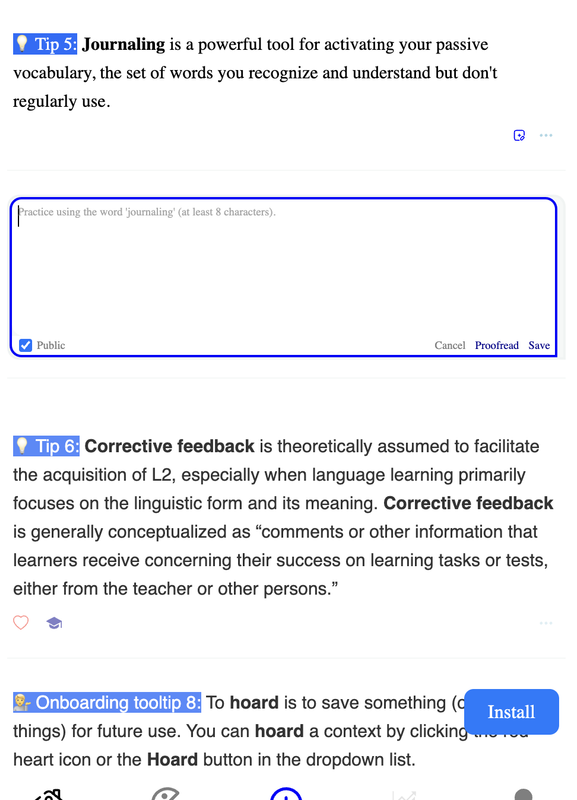
Once we have done the writing, we can click the "proofread" button to check how to correct the errors or improve further. However, be cautious, as we may not need to follow all the advice.
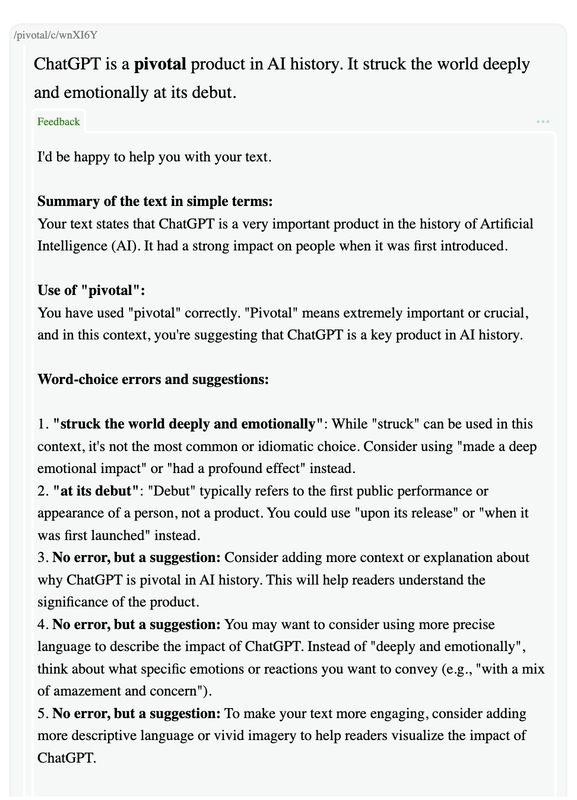
## 3. Effective retention
Last but not least, all the aforementioned actions and materials will be used to generate smart exercises that help us retain the words we find compelling and urgently seek to incorporate into our writing and speaking. For instance, our saved contexts will be turned into [flashcards](https://en.wikipedia.org/wiki/Flashcard):
### The front side
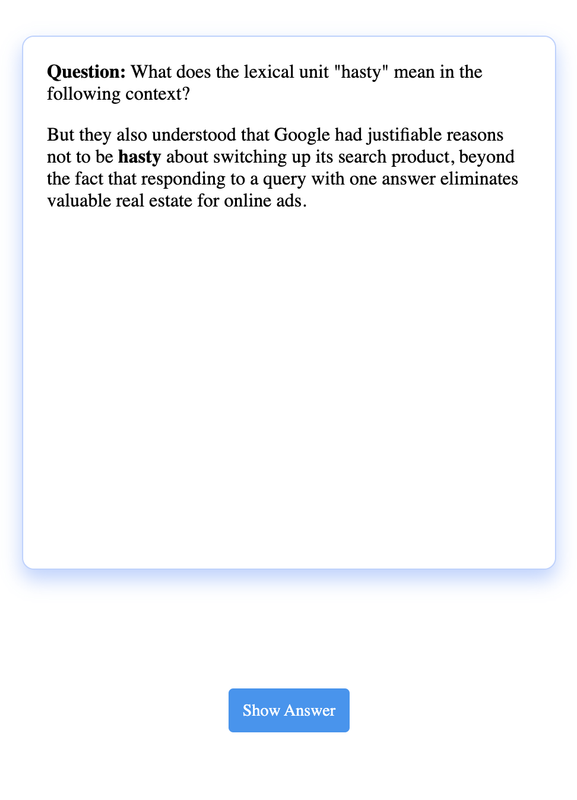
### The back side
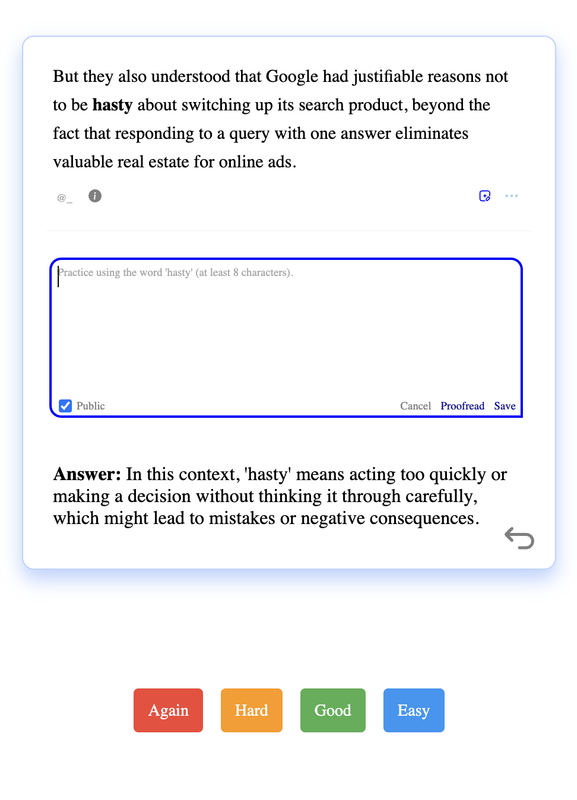
That's it. If you need an educated, expansive vocabulary, please give Vocabulary Journal a try: [app.vocabulary-journal.com](https://app.vocabulary-journal.com). If you have any ideas please shoot me an email at lerner.zhang@gmail.com or request a feature at [vocabulary-journal.canny.io](https://vocabulary-journal.canny.io/feature-requests/create).
Keep journaling!